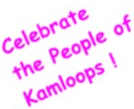 Page 1 of Candidates
Page 1 of Candidates
 Page 1 of Candidates
Page 1 of Candidates

Roxanne Hall I started out as a solo performer at the age of thirteen, at high school assemblies, and coffee houses, loved choir, and drama class. My guitar was my best friend. After high school I taught guitar, went to modeling school, won a beauty contest, broke all the rules, sang radio jingles, made people's spines tingle, duos, bands, college and babies, recording, performing, releasing, dancing, and dreaming of a better way a brighter day. It doesn't stop, and the music never goes away. My sister bought me my first guitar at the age of 12. It changed my life, gave me the vehicle to start writing songs. So there I would be, locked in my bedroom, writing songs about things that I had a hard time talking about. I think that music is playing all of the time, all around us. We need to only tune in. There is not much thinking involved, it's more of a listening. (From website) |
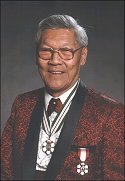
Peter Wing Peter was born in Kamloops in 1914 and has lived all of his life in that city. At the age of 20 he became the youngest member of the Kamloops Board of Trade and pursued an active role in the business life. He became an alderman in 1960 and went on to serve three terms as mayor of Kamloops, beginning in 1966. While serving as mayor he was also elected President of the Union of British Columbia Municipalities. Mr. Wing's success in civic life is significant in that he was the first mayor of Chinese descent in North America, as well as being the first native-born mayor of Kamloops. Peter Wing was made a Freeman of the City of Kamloops in 1972 and a Member of the Order of Canada in 1976. He was also a recipient of the Human Relations Award of the Canadian Council of Christians and Jews in 1977. (From website) |
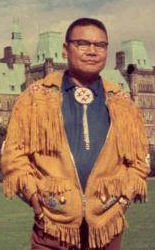
George Manuel George was a Secwepemc (Shuswap) activist (b 17 Feb 1921, Neskonlith; d 15 Nov 1989, Kamloops). Raised by grandparents, he attended Kamloops Residential School until he fell sick with tuberculosis at age 12. He worked as a busboy, fruit picker and logger and, inspired by Andrew Paull, got involved in Aboriginal politics as an organizer. From 1970 to 1976 he was president of the National Indian Brotherhood, now the Assembly of First Nations, and led the organization in its activist role. He was a tireless worker who traveled the world, promoting the concept of a "Fourth World" of indigenous peoples, and brought international attention to Canada's First Nations and Aboriginal rights issues. In 1975 he became founding president of the World Council of Indigenous Peoples, a position he held until 1981. Largely self-educated, he received an honorary degree from UBC and was made an officer in the Order of Canada in 1986. (from B.C. Encyclopedia) |
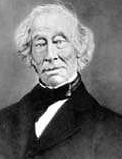
John Tod John was a fur trader (b Oct 1794, Dumbartonshire, Scotland; d 31 Aug 1882, Victoria). He came to Canada in 1811 as a clerk with the HBC attached to Lord Selkirk's group of colonists bound for the Red River. In 1840 he took command of Fort Alexandria on the upper Fraser River, and he served as senior officer at Fort Thompson (Kamloops) from 1842 to 1849. In failing health, he retired from the HBC in 1850 after almost 40 years in its service, and settled near Fort Victoria. In 1851 he was appointed to the Legislative Council advising the governor of Vancouver Island, a position he held until 1858 when he resigned to devote all his energies to his farm and his sizable family. The Tod home is now a heritage house. Tod Mt near Kamloops is named for him, as is Tod Inlet on southern Vancouver Island. (from B.C. Encyclopedia) |
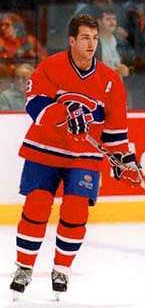
Mark Recchi Mark is a hockey player (b 1 Feb 1968, Kamloops). He played his junior hockey with the Kamloops Blazers in the WHL. Underrated because of his small size, he was drafted only in the fourth round but surprised everyone by proving to be a prolific NHL scorer. The Penguins won the 1991 Stanley Cup thanks in large part to his play, but they traded him to Philadelphia midway through the next season. With the Flyers in 1992-93, he scored a career-high 53 goals and 123 points, a points record that stands alongside his 73 assists (1990-91) as the highest totals in the 20th century by any player born and raised in BC. In 1995 he was traded to Montreal and was a member of Team Canada at the 1998 Winter Olympics in Nagano. The Flyers reacquired him in 1998-99 and he led the team in scoring for the next two seasons. (from B.C. Encyclopedia) |
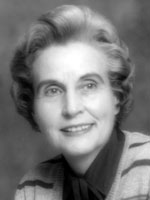
Joan Weir Joan was born in Calgary, Alberta, April 21, 1928 After graduating from the University of Manitoba, Joan began her career writing radio and TV scripts for children, but soon moved into writing novels for juvenile and young adult readers. A dog and a horse lover she admits to having included one or the other in many of her books. Three of her young adult novels, Sixteen is spelled O-U-C-H, Storm Rider and Secret at Westwind have received international recognition and have been translated into Swedish, Finnish and Norwegian. In addition to her juvenile and young adult novels Joan has published a number of short stories, three plays for children's theatre, and six non-fiction adult histories. It is the research for these histories that has prompted her two most recent young adult historical novels, The Brideship and Maybe Tomorrow. For many years Joan taught Creative Writing at the University College of the Cariboo in Kamloops. (From website) |